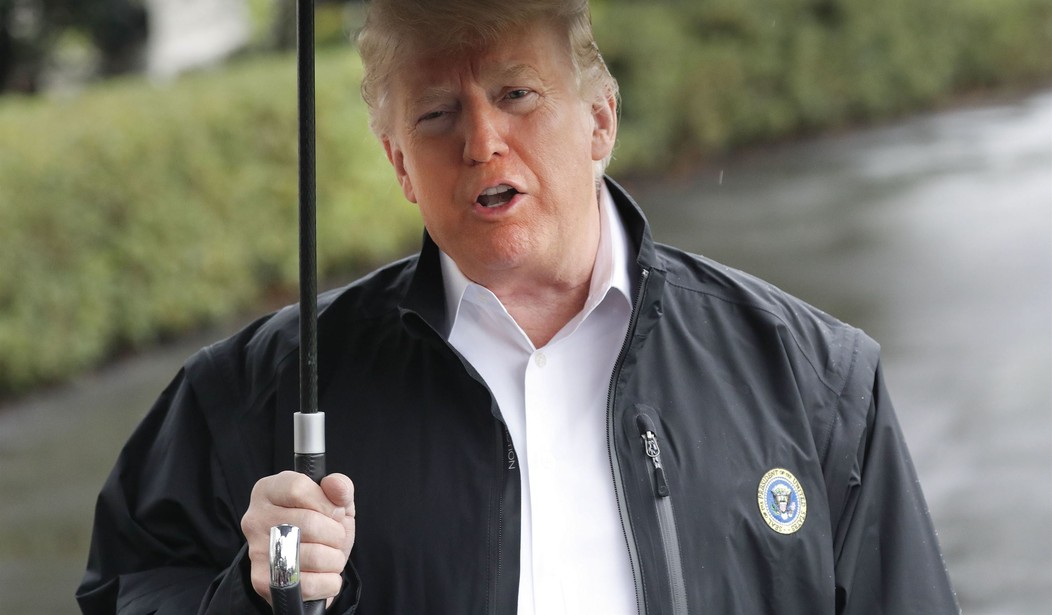Kanye West's literal embrace of Donald Trump was all over the news last week. The president's rhetorical embrace of criminal justice reform got considerably less attention, but may prove more consequential.
In an interview with Fox News on the morning of his meeting with the rap impresario, Trump signaled that he was ready to go beyond "back-end" reform, which focuses on rehabilitation of inmates, and support "front end" reform, which focuses on reducing sentences and sending fewer people to prison. The key to understanding Trump's remarks is Alice Marie Johnson, whose sentence the president commuted in June at the behest of West's wife, Kim Kardashian.
Johnson, a first-time offender who received a life sentence in 1996 for participating in a Memphis cocaine trafficking organization, has described herself as "a telephone mule, passing messages between the distributors and sellers." While serving nearly 22 years in federal prison, she became a grandmother and great-grandmother, an ordained minister and a mentor to other inmates.
Although it took the intercession of a fellow reality TV star for Trump to free Johnson, he clearly was impressed by her story. More important, he recognizes that Johnson, whom he calls "the most incredible woman," is not unique in receiving an absurdly disproportionate sentence for a nonviolent crime.
"You have many people like Mrs. Johnson," Trump said on Fox News. "There are people in jail for really long terms."
Notably, Trump did not say the solution is more commutations, although those would certainly be welcome. "There has to be a reform, because it's very unfair right now," he said. "It's very unfair to African-Americans. It's very unfair to everybody."
Recommended
Trump had high praise for criminal justice reforms in Texas and Georgia, which in recent years have seen falling crime rates even as they reduced their prison populations. "They really have done a tremendous job with reform," he said.
These comments, which may seem surprising from a man who has consciously cultivated a tough-on-crime image, reflect the influence of people Trump respects, people like his son-in-law, Jared Kushner, and former House Speaker Newt Gingrich, a supporter of the conservative reform organization Right on Crime. And yes, people like Kanye West and Kim Kardashian.
That influence could be crucial in the ongoing debate about federal sentencing reform. Last May, the House overwhelmingly approved the FIRST STEP Act, a collection of modest prison reforms aimed at reducing recidivism and promoting reintegration. The bill is on hold in the Senate, where Judiciary Committee Chairman Charles Grassley (R-Iowa) is demanding that it include sentencing reforms as well.
The latest proposal would incorporate into the FIRST STEP Act four elements of Grassley's Sentencing Reform and Corrections Act. The amendments would widen the "safety valve" that lets some drug offenders escape mandatory minimum sentences, narrow the criteria for mandatory minimums that apply to repeat drug offenders, clarify that escalating sentences for drug offenders who have guns require prior convictions, and retroactively apply the shorter crack cocaine sentences that Congress approved in 2010.
If Trump backs the changes Grassley wants, an amended bill could be approved by the lame-duck Congress after the election. "I believe the president was sincere," said Jason Pye, the vice president of legislative affairs at FreedomWorks, which supports sentencing reform. "I was skeptical when the White House began dabbling in this more than year ago. But the White House has been fully engaged on this."
People do change their minds about these issues: Not long ago, Grassley himself was an ardent opponent of sentencing reform. In Trump's case, the evolutionary pressure may come from people he disdains as well as people he admires.
Attorney General Jeff Sessions is no fan of sentencing reform, which may count in its favor, as far as Trump is concerned. If Sessions does not get on board with "prison reform," Trump said on Fox News, "then he gets overruled by me, because I make the decision."

























Join the conversation as a VIP Member